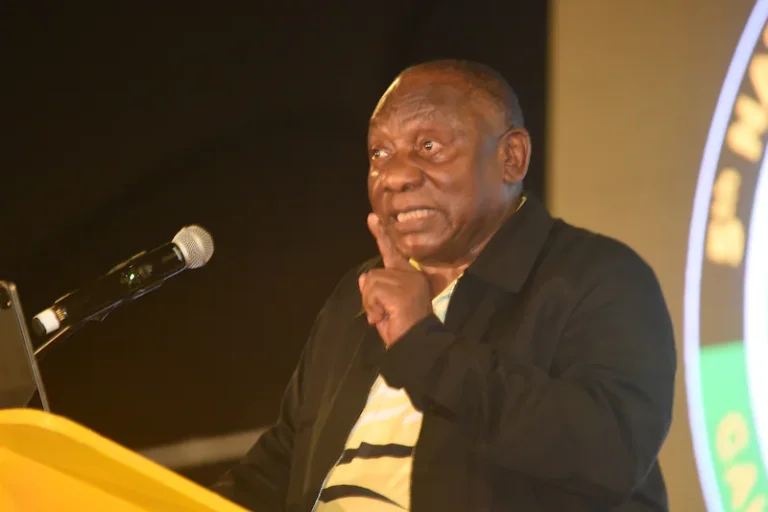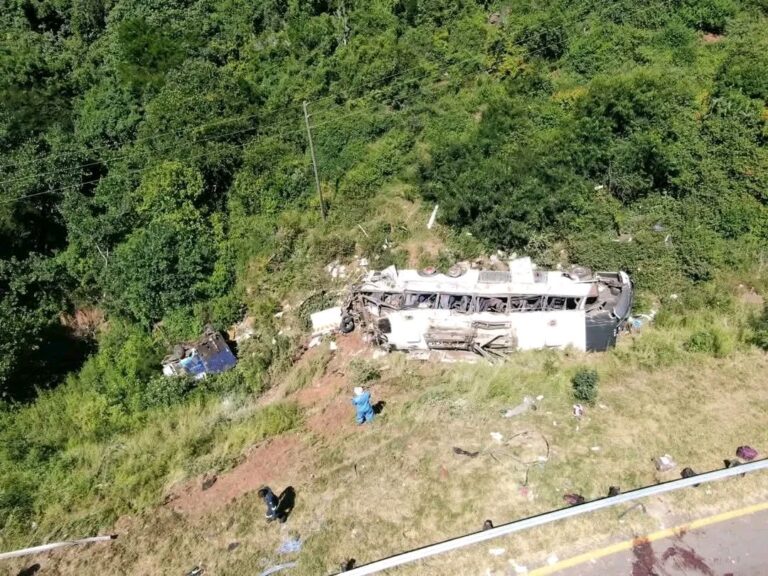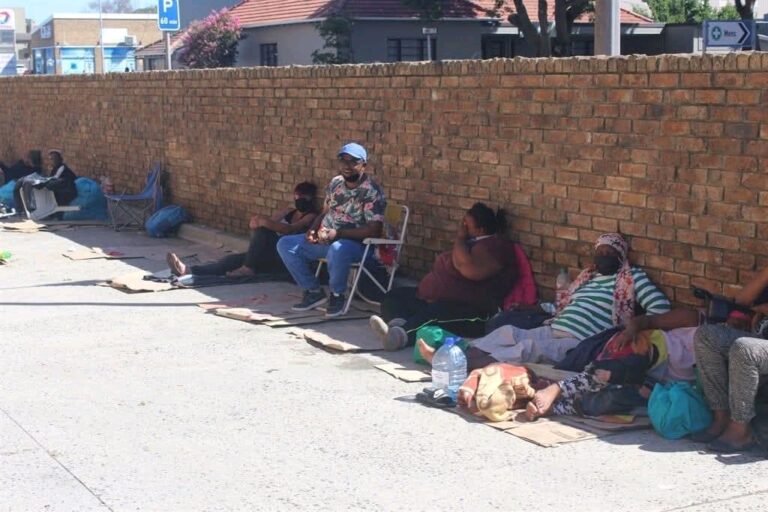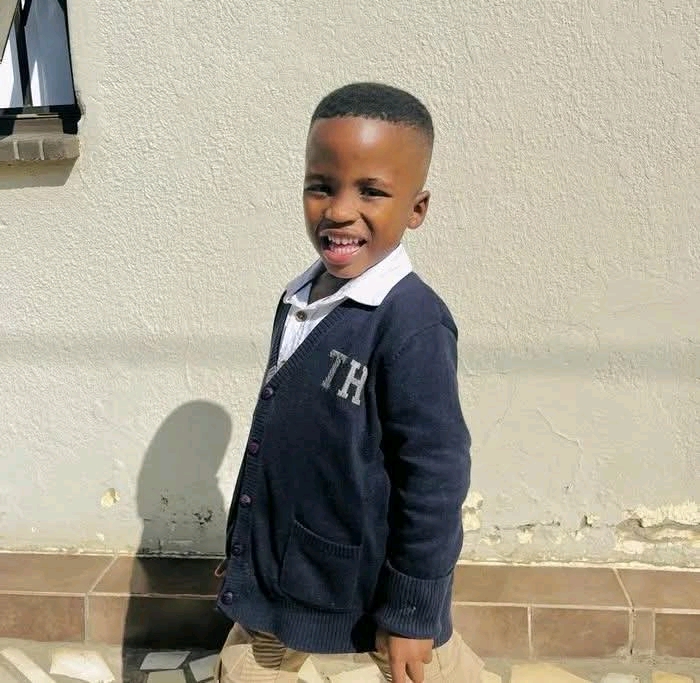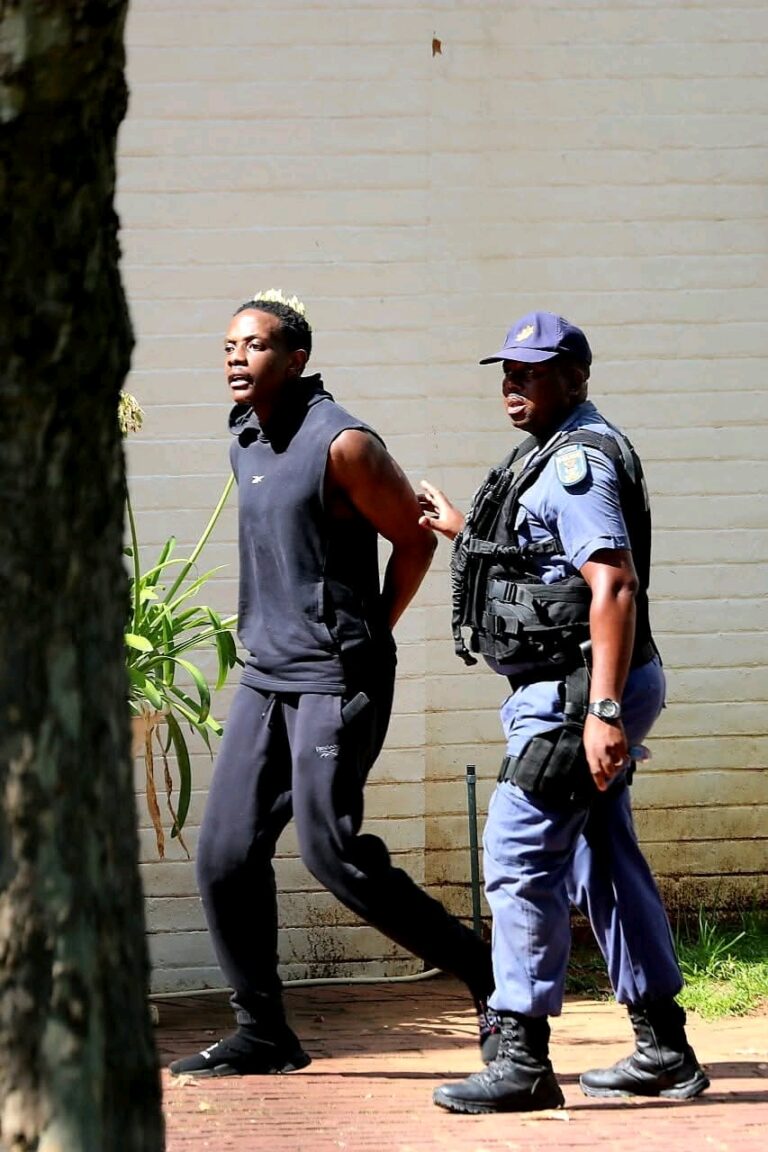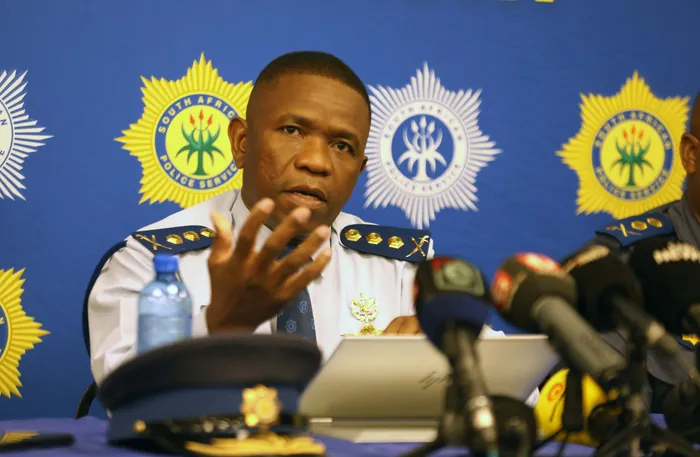
KwaZulu-Natal Police Commissioner, General Nhlanhla Mkhwanazi, has revealed that he cannot afford private bodyguards to protect his family, despite the dangers associated with his high-profile position. Speaking candidly during a live interview on eNCA, Mkhwanazi said his family’s safety depends entirely on the police service because he lacks the financial means to hire personal security.
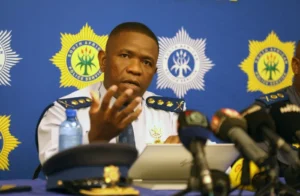
The commissioner’s comments have sparked widespread discussion across South Africa, with many expressing shock that one of the country’s top law enforcement officials lives without personal protection. Mkhwanazi explained that being a senior police officer does not automatically come with luxury or extra security benefits, emphasizing that his position offers no shield from the risks tied to his work.
“I cannot afford bodyguards,” Mkhwanazi said during the interview. “Like any other officer, I rely on the police to do their job and keep my family safe. That is the reality.”
His remarks come at a critical time as he continues to appear before Parliament’s Ad Hoc Committee. These hearings have placed him under intense scrutiny following his bold allegations of corruption and interference within the South African Police Service (SAPS). The general’s outspoken stance has reportedly made him a controversial figure within law enforcement circles, and his admission about lacking personal protection has raised concerns about his and his family’s safety.
https://x.com/eNCA/status/1975836009150751087?t=nNfLh8zFmwG_gZugX76i8w&s=19
Public reaction to Mkhwanazi’s revelation has been mixed. Some South Africans praised his honesty and humility, viewing his situation as a reflection of integrity and courage. Others, however, expressed alarm that a person of his rank — responsible for ensuring provincial safety — is not afforded sufficient protection by the state. Social media users have since called for the government to review the safety measures provided to top police officials, especially those involved in sensitive investigations or testimony.
Analysts believe Mkhwanazi’s comments highlight deeper issues within SAPS, including inadequate support systems for officers who face threats while performing their duties. His situation, they argue, underscores a troubling reality where even senior figures in law enforcement are vulnerable to danger without proper institutional backing.
The general’s statement also comes amid growing concerns about corruption and mismanagement within the police service. Mkhwanazi’s earlier testimonies before Parliament have exposed alleged political interference in police operations and questioned the integrity of certain high-ranking officials. His revelations have added to the ongoing national debate about accountability and safety within the country’s security sector.
As the hearings progress, Mkhwanazi’s openness about his personal challenges adds a human dimension to his professional struggles. His words serve as a reminder that leadership positions in law enforcement often come with personal risks — and that even those tasked with protecting others sometimes lack protection themselves.
For now, the country watches closely as General Mkhwanazi’s story unfolds — a story that reflects both the courage of one man and the systemic weaknesses in South Africa’s fight against crime and corruption.


